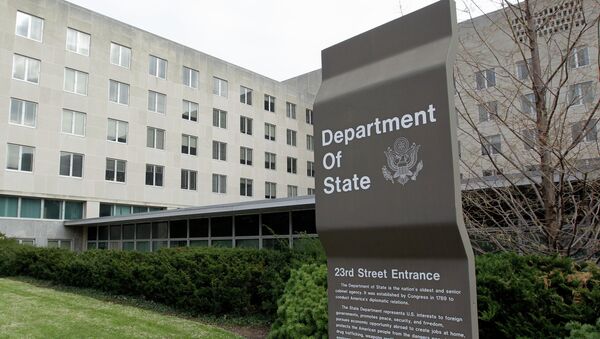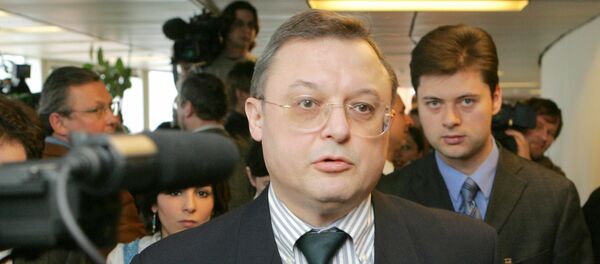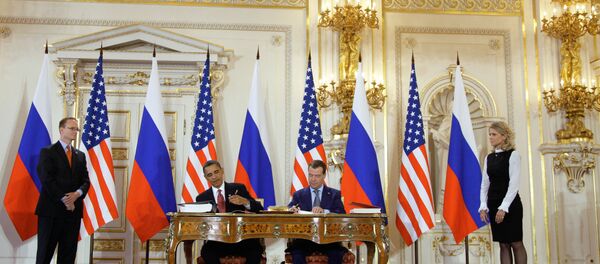The two sides continue to honestly implement the terms of the treaty despite tensions over the Ukrainian crisis and some other international issues, Rose said Thursday at a press-conference on the nuclear disarmament and international security in Colorado Springs.
The State Department official said the latest events in Ukraine "dramatically complicated" the work to minimize the global nuclear threat, but cooperation with Moscow on the New START treaty remains "a silver lining."
"According to the latest data exchange with Russia, the two sides have made a significant progress over the restrictions presumed by the treaty by February 2018," Rose said.
He pointed out that by that time Russian and the US will each have 1,550 deployed nuclear warheads, the smallest number since the beginning of the nuclear arms development.
The New Strategic Arms Reduction Treaty (START), which lays out the further reduction of deployed strategic nuclear weapons was signed on April 8, 2010, in Prague. It came into force on February 5, 2011. It replaced the old treaty which expired in December 2009. The New START treaty limits the number of the deployed nuclear warheads to 1,550, and the number of intercontinental ballistic missiles, submarine ballistic missile and heavy bombers to 700. The document is expected to last at least for 10 years with the possibility to be prolonged for five years by mutual agreement of the two sides.





